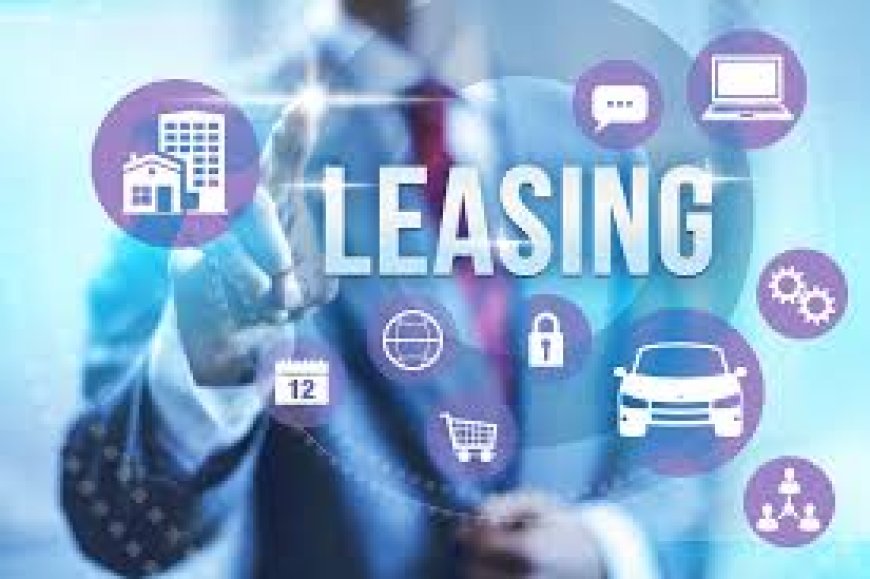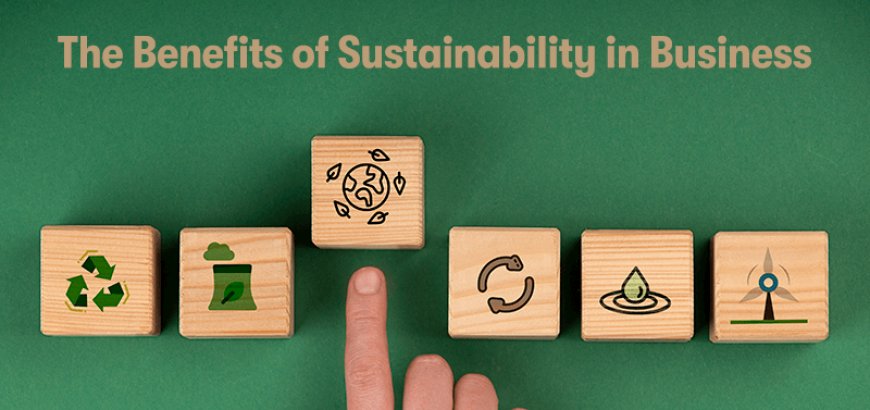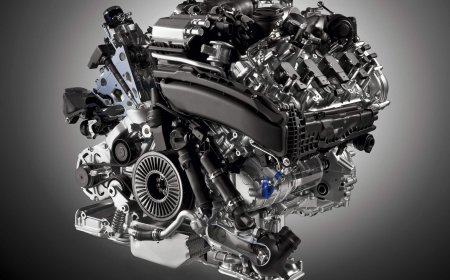Why Smart Businesses Are Turning to Leasing — And How You Can Too!
Discover the power of business leasing and how it can help your company reduce upfront costs, stay flexible with equipment upgrades, and boost overall growth. This guide covers everything entrepreneurs need to know to make smart leasing choices in today’s competitive market.

In todays fast-paced business landscape, companies are constantly seeking ways to optimize resources, reduce costs, and maintain flexibility. One strategy gaining significant traction is business leasing. From equipment and vehicles to office spaces and technology, leasing offers a practical alternative to purchasing, enabling businesses to stay agile and competitive.
What Is Business Leasing?
Business leasing involves renting assetssuch as machinery, vehicles, office spaces, or technologyover a fixed period in exchange for regular payments. Unlike purchasing, leasing doesnt require a large upfront investment, and the asset is typically returned to the lessor at the end of the term. This model is particularly appealing for businesses looking to manage cash flow effectively while accessing the tools and spaces they need to operate.

Leasing arrangements come in various forms, including operating leases (short-term, often with maintenance included) and finance leases (longer-term, resembling ownership). Each type offers unique advantages depending on a companys needs, goals, and financial strategy.
The Financial Advantages of Leasing
One of the primary reasons businesses turn to leasing is its financial flexibility. Instead of tying up capital in expensive purchases, companies can allocate funds to other critical areas like marketing, hiring, or product development. Leasing payments are typically fixed, making budgeting predictable and shielding businesses from unexpected repair or maintenance costs, which are often covered by the lessor.
Additionally, leasing can offer tax benefits. In many cases, lease payments are considered operating expenses and are fully deductible, reducing taxable income. This is a significant advantage for businesses aiming to optimize their tax strategy. Consulting with a financial advisor can help clarify how leasing fits into your specific tax situation.
Leasing also mitigates the risk of asset depreciation. When you purchase equipment or vehicles, their value decreases over time, often faster than anticipated. With leasing, this concern is eliminated, as the lessor assumes the risk of depreciation, allowing businesses to focus on operations rather than asset management.
Flexibility to Stay Competitive
The business world evolves rapidly, and staying ahead often requires access to the latest technology, equipment, or facilities. Leasing enables companies to upgrade to newer models at the end of a lease term without the hassle of selling outdated assets. For example, a company leasing cutting-edge manufacturing equipment can swap it for a newer version when the lease expires, ensuring they remain competitive without significant reinvestment.
This flexibility is particularly valuable in industries where technology advances quickly, such as IT, healthcare, or logistics. By leasing, businesses can adapt to market demands and technological innovations without being locked into obsolete assets.
Preserving Credit and Cash Flow
For small and medium-sized enterprises (SMEs), maintaining liquidity is critical. Purchasing assets outright often requires loans or dipping into cash reserves, which can strain finances and limit growth opportunities. Leasing, on the other hand, typically requires minimal upfront costs, preserving credit lines for other strategic investments.
Moreover, leasing agreements are often easier to secure than traditional loans, especially for startups or businesses with limited credit history. This accessibility makes leasing an attractive option for companies looking to scale without overextending their financial resources.
Environmental and Sustainability Benefits
As sustainability becomes a priority for businesses worldwide, leasing aligns with eco-conscious practices. Many leasing companies, such as Smart Lease, prioritize offering energy-efficient equipment and vehicles, helping businesses reduce their carbon footprint. Additionally, leasing promotes a circular economy by encouraging the reuse and recycling of assets at the end of their lease term, rather than contributing to waste through disposal.

For businesses aiming to meet environmental, social, and governance (ESG) goals, leasing provides a pathway to access sustainable assets without the high costs of ownership. This not only supports corporate responsibility but also appeals to customers and investors who value sustainability.
Key Considerations Before Leasing
While leasing offers numerous benefits, its essential to approach it strategically. Here are some practical steps to ensure leasing works for your business:
-
Assess Your Needs: Identify the assets critical to your operations and determine whether leasing or purchasing makes more sense. Consider factors like usage frequency, technological advancements, and long-term goals.
-
Understand the Terms: Carefully review lease agreements, including payment schedules, maintenance responsibilities, and end-of-term options (e.g., returning, renewing, or purchasing the asset). Clear terms prevent unexpected costs or obligations.
-
Compare Providers: Research leasing companies to find those offering competitive rates, flexible terms, and reliable support. Look for providers with industry-specific expertise to ensure they understand your businesss unique needs.
-
Evaluate Total Costs: While leasing often has lower upfront costs, consider the total cost over the lease term compared to purchasing. In some cases, long-term leasing may be more expensive, so weigh the trade-offs.
-
Plan for the Future: Choose lease terms that align with your businesss growth trajectory. Short-term leases offer flexibility, while longer-term leases may provide cost savings for stable operations.
Who Can Benefit from Leasing?
Leasing is versatile and suits businesses of all sizes and industries. Startups can use leasing to access high-quality assets without draining capital, while established companies can leverage it to modernize operations or expand into new markets. Industries like construction, healthcare, transportation, and retail particularly benefit from leasing due to their reliance on specialized equipment and vehicles.
For example, a logistics company might lease a fleet of electric delivery vans to meet sustainability goals while keeping costs manageable. Similarly, a medical practice could lease advanced diagnostic equipment to provide cutting-edge care without a massive upfront investment.
How to Get Started with Leasing
Transitioning to a leasing model is straightforward. Begin by identifying the assets your business needs, whether its office space, vehicles, or specialized machinery. Next, research reputable leasing providers with a track record of reliability and customer service. Request quotes and compare terms to find the best fit for your budget and goals.
Once youve selected a provider, work closely with them to customize a lease agreement that aligns with your operational needs. Ensure you understand all terms, including maintenance responsibilities and end-of-lease options, to avoid surprises. Finally, integrate leasing into your broader financial strategy to maximize its benefits.
Why Leasing Is the Future of Business
As economic uncertainty and technological advancements continue to shape the business landscape, leasing offers a strategic solution for companies seeking agility and efficiency. By reducing financial strain, providing access to modern assets, and supporting sustainability, leasing empowers businesses to focus on what they do bestdelivering value to customers.
For companies ready to embrace this approach, the key is to act thoughtfully. By assessing needs, comparing providers, and understanding terms, businesses can unlock the full potential of leasing to drive growth and success. Whether youre a startup or an established enterprise, leasing could be the game-changer your business needs in 2025.






































